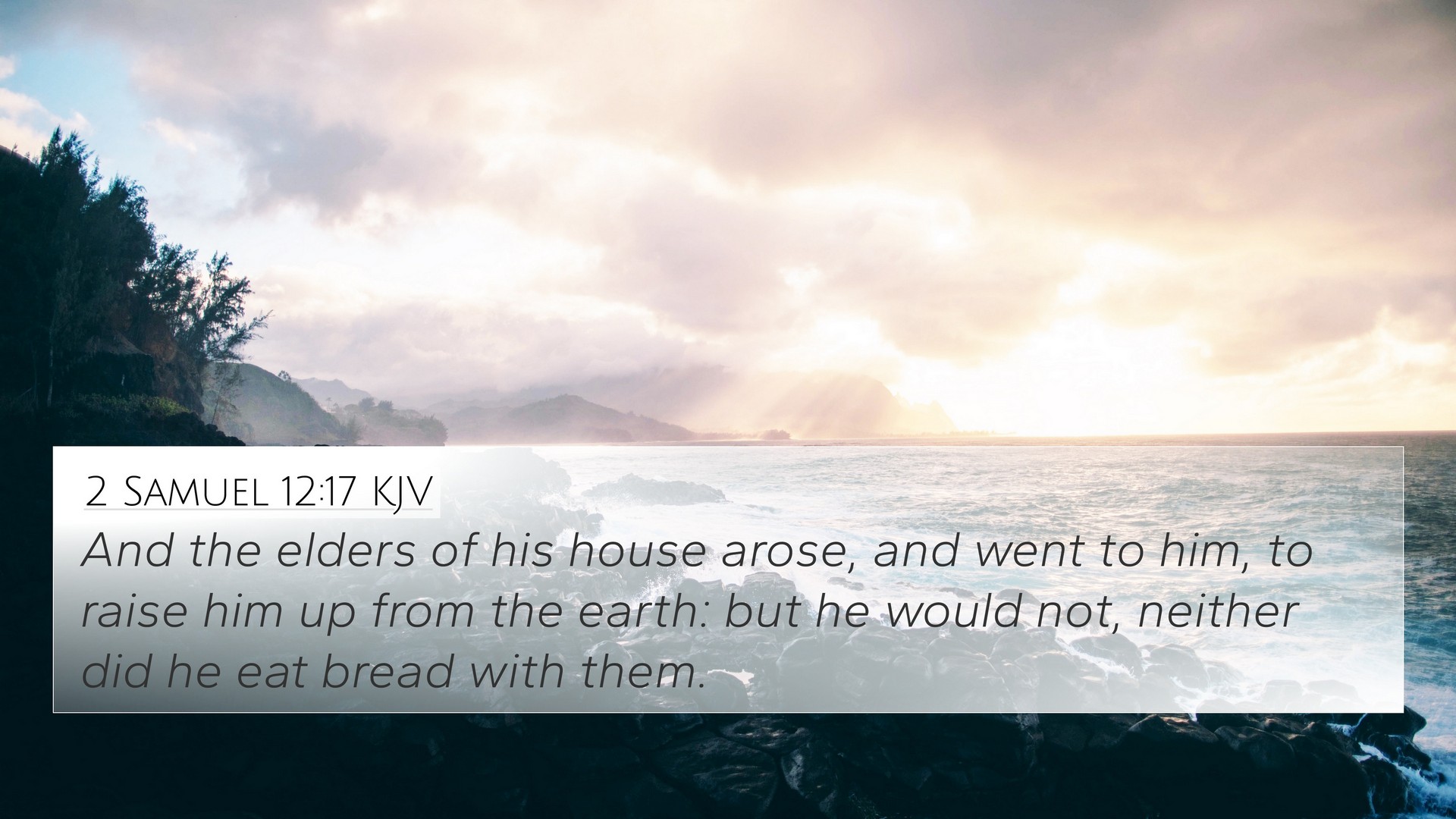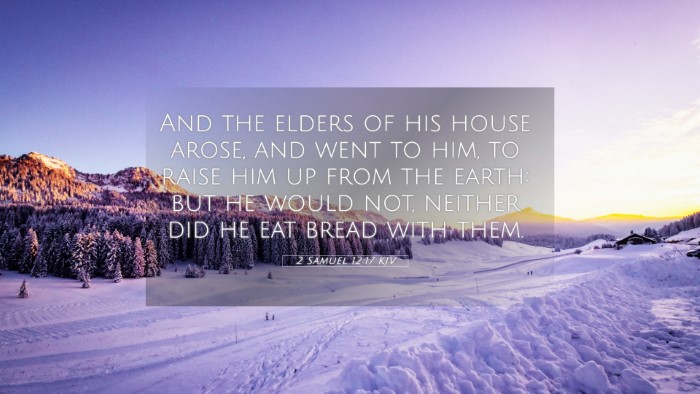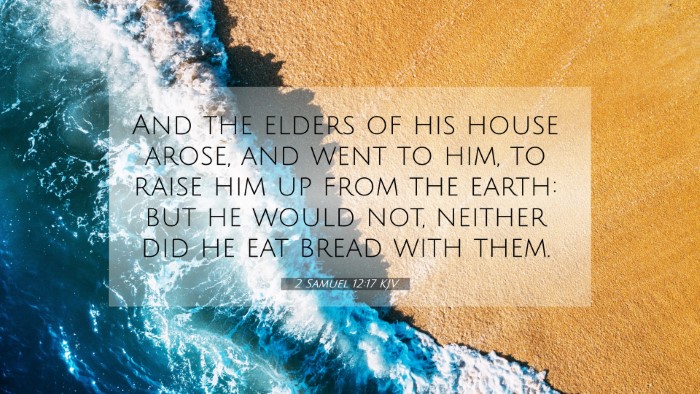Understanding 2 Samuel 12:17
The verse 2 Samuel 12:17 is part of a profound narrative that unfolds a pivotal scene in King David's life following his sin with Bathsheba. In this passage, the mood reflects a deep emotional turmoil as David faces the consequences of his actions, particularly regarding the fate of his newborn child.
Verse Context and Background
David's son had fallen ill, and he desperately sought God's mercy through fasting and prayer. Despite his heartfelt pleas, the child dies, leading to a stirring discussion about God's grace and judgment. This moment encapsulates themes of sin, repentance, and divine sovereignty.
Insights from Public Domain Commentaries
Matthew Henry's Commentary
Matthew Henry emphasizes the importance of humility and the recognition of our limitations in approaching God’s justice. He notes that despite David’s earnest efforts to plead for the child's life, God’s will prevailed. This illustrates the reality that divine judgment cannot be swayed by human effort, but rather highlights the need for acceptance of God’s plans even when they are difficult to comprehend.
Albert Barnes' Notes on the Bible
Albert Barnes details both the emotional anguish and the ultimate submission to God’s will shown by David. In times of tragedy, Barnes points out, we often see the character of true worship; it is not merely asking for what we desire but trusting God’s wisdom. David’s acknowledgment of the finality of death serves as a poignant reminder of the limits of intercession; he must confront the reality that God's decrees are sometimes incomprehensible yet always just.
Adam Clarke's Commentary
Adam Clarke provides a reflective view on the intensity of David's emotional state. He discusses the cultural practices of mourning during this period, indicating that fasting and weeping were expressions of deep sorrow. However, Clarke also highlights the transformative moment when David ceases mourning and begins to worship, suggesting a movement from despair to hope, grounding his faith in God's overarching plan.
Thematic Connections
Various themes emerge from this passage, such as:
- Divine Sovereignty: The absolute control of God over life and death.
- Repentance: King David's recognition of his sins and God's consequent judgment.
- Grace and Mercy: God's compassion amidst justice, and the hope it instills in believers.
- Human Suffering: The emotional pains experienced in the face of loss and the search for understanding.
Cross-References to Consider
This verse connects deeply with several other scriptures, exploring the principles of sin, judgment, and hope. Notable cross-references include:
- Psalm 51: David’s plea for forgiveness after his sin.
- 2 Samuel 12:14: The consequences of David’s sin highlighted.
- Hebrews 12:6: Divine discipline as an expression of love.
- Romans 8:28: God working all things for the good of those who love Him.
- Job 1:21: Job’s acknowledgment of God's sovereignty in giving and taking away.
- Isaiah 55:8-9: God’s ways and thoughts being higher than human understanding.
- John 11:35: Jesus weeps, highlighting the compassion of God in human sorrow.
Practical Application and Reflection
For modern believers, the message embedded in 2 Samuel 12:17 serves multiple purposes:
- Understanding Grief: Acknowledge that mourning is a part of the human experience, and it is okay to grieve losses.
- Trust in God’s Plans: Accept that there are aspects of life beyond our control, and trust in God’s overarching plan.
- Seek Forgiveness: Be earnest in seeking repentance when straying from God’s directives, recognizing the importance of contrition.
- Encouragement in Trials: Draw strength from the community and scripture in times of distress.
In summary, 2 Samuel 12:17 sheds light on the complex nature of God’s justice and mercy. Through understanding this verse and its surrounding context, believers are encouraged to reflect on their relationship with God, embracing both His authority and grace.




